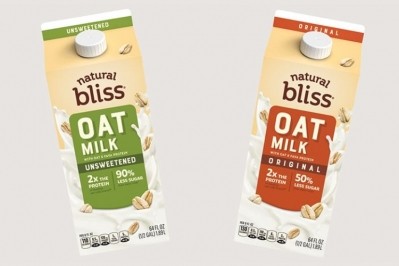Nestlé focuses on ‘opportunities of choice and variety’ with latest foodservice releases

Nestlé Professional is looking to capitalize on the recovery in the out-of-home channels by offering dairy-free solutions for a variety of applications and regional preferences - from cold coffee to barista-style beverages and powdered creamers.
For example, a Nestlé Barista plant-based coconut drink was launched in Thailand earlier this year, primarily for use in cold beverages to meet consumer tastes in that region. In China, Nestlé has launched two new plant-based dairy alternatives in the past year - one pea- and one oat-based - under the Nestlé Barista brand. And another barista-focused dairy alternative made with peas was launched under the Nestlé Barista brand in South Korea, Taiwan, and Singapore. In Chile, the company also rolled out a powdered plant-based creamer based on rice, designed for Nescafé automatic machines and released under the Nature's Heart brand.
As many analysts predict the global plant-based milk market to grow at a double-digit CAGR to 2030, Nestlé says cafés remain important bastion for dairy alternatives. “Many consumers are introduced to or learn about plant-based milk alternatives away from home, in coffee shops or independent cafés, for example,” said Manuel Aleman, Global Category Lead Coffee Ingredients & Plant-Based Beverages at Nestlé Professional. “Many beverage and culinary trends are set out of home – chefs and baristas are creative people and are always looking for new products to highlight their expertise.”
Aleman added that the trend towards more plant-based options remains, with around 40% of consumers globally aiming to reduce their intake of animal products. Taste is key for those who choose to stay in the category, but can vary significantly from one region to another. “Taste and flavor are one of the broadest and subjective areas, it varies from region to region and even across consumers target groups. So, our goal is to empower baristas with the best foundation for their beverages. Our focus is to deliver a product that does not overpower the coffee and offers a creamy taste,” explained Aleman.
“Performance is always one of the key points to address in the out-of-home and our dairy alternatives are developed by baristas and for baristas,” he added. “Being able to properly steam and providing a good performance when doing latte art is critical for baristas. We also ensure the plant-based alternatives blend well with coffee, are great-tasting and have a smooth and silky mouthfeel when being prepared by professional baristas. At the same time, we remain focused on delivering good nutrition, including high-quality protein.”
Nestlé has recently experimented with plant blends to deliver higher protein content, such as in its fava and oat milk blend released in the US and designed for at-home consumption. “We always look for good nutritional value, including protein content, as well as how it matches on performance and taste to deliver the best product to our customers and consumers,” said Aleman. “R&D experts are also exploring the next generation of plant-based ingredients including fava while considering different functional, nutritional, and sustainability aspects.”
The company's plant and food scientists are working ‘to breed and select nutritious, tasty pulse varieties best suited for different plant-based alternatives’, we were told. “Our pea-based drinks offer strong nutritional value – they are high in fiber, low in sugar, sodium and fat and enriched with calcium and are a good source of vitamins D, B2 and B12,” concluded Aleman.







